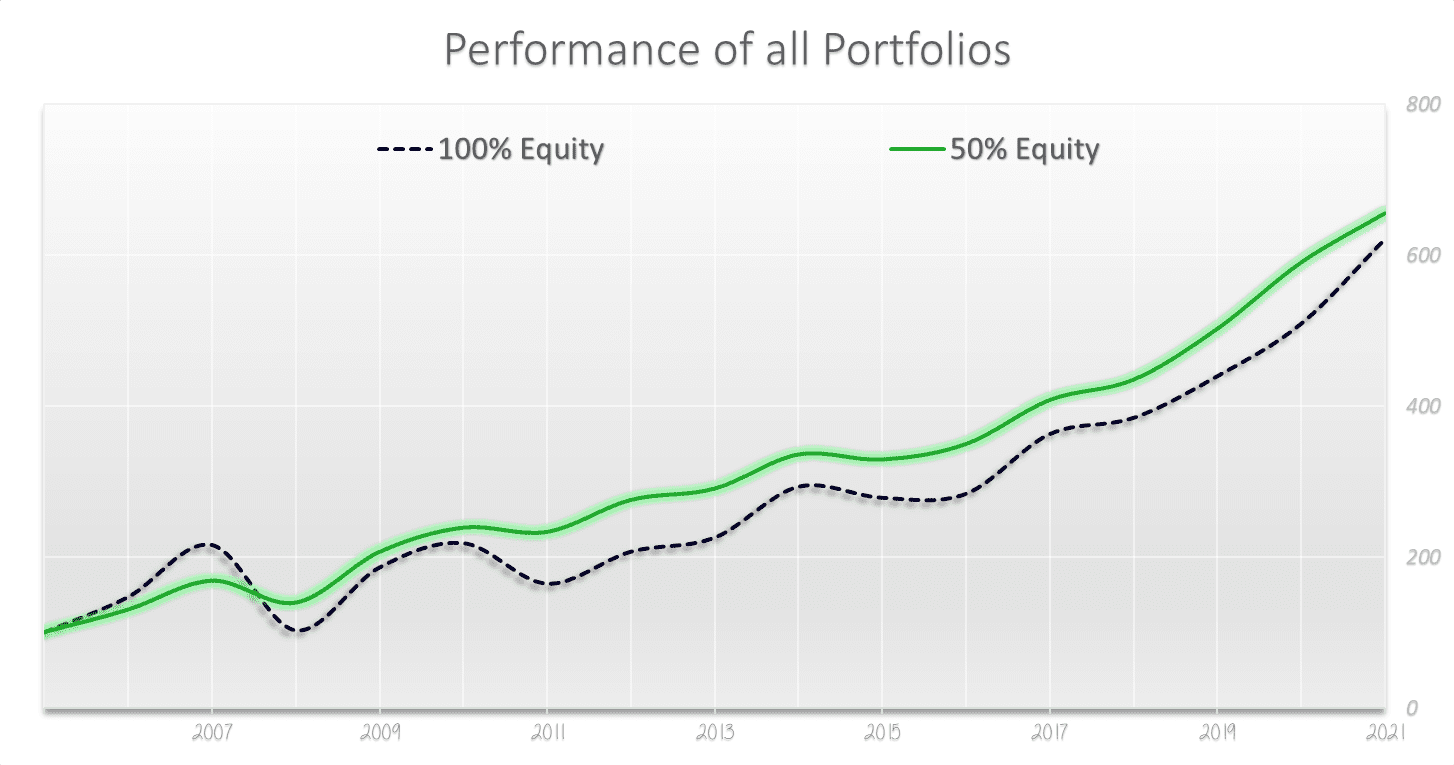Taking 100% Risk did not generate the best returns

Result based on yearly returns and yearly rebalanced .
What happens if you go moderate on your asset allocation even when the market seem to rise higher and higher. This scenario played out very well for investors who took what looked like a contrarian view at that time. And not only that they stuck to moderate allocation for the next 16 years.
Asset allocation strategy gave higher returns during the same period from 2006 to 2021. Investors who chose to reduce equity weightage ware rewarded by as much as 35% to 60% more returns than pure equity investors (pre-tax). This breaks a myth that only equity gives you best returns 😀.
You can find the returns for two asset allocation strategies below. Do note that these are pre-tax and the rest of the fund are equally distributed in debt and gold.
| Asset Class | Absolute Returns |
| 70% Equity | 578% |
| 50% Equity | 554% |
The above hybrid investments are rebalancing once a year. No tax liability is included in above calculation. This means, that the actual performance will be lower .
Source: My analysis from ICICI Pru AMC hybrid portfolio report. Returns are yearly, from Jan 2006 to Dec 2021,
So what happened to pure investments in equity, gold and debt. Well surprisingly both equity and gold have similar returns till Dec 21.
| Asset Class | Absolute returns |
| 100% Equity | 521% |
| 100% Debt | 234% |
| 100% Gold | 527% |
For Jan-to-Dec returns gold had its best run from 2006 to 2012 (7 years) growing by 3 times. Equity during this time only managed to doubled in 7 years. It is interesting to know that debt gave higher returns than equity in 6 out of 16 years.
Conclusion.
They say their are many roads leading to one destination. Some use shortcuts while other stick to main highway. Highways are dependable but sometimes. Asset allocation strategy is the highway that can help you reach your goal in a unpredictable market.
Asset allocation is a simple to explain strategy and one that is also easy to maintain. You can choose an asset allocation strategy for two important reasons a) reduce risk, and b) make better overall returns.
We will discuss more about asset allocation its advantages and disadvantages in a later post.
Next we will study the performance after tax.


